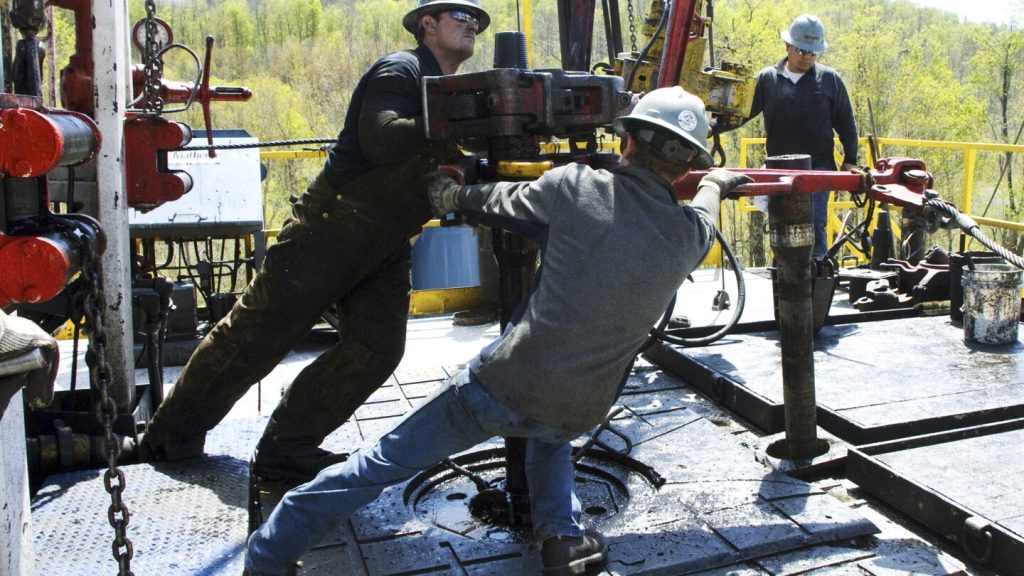Vice President Kamala Harris made a surprising statement during Tuesday’s debate, claiming that the Biden-Harris administration oversaw the largest increase in domestic oil production in history. This contradicted previous assertions by Harris and President Joe Biden that they are committed to combating climate change. Despite rejoining the Paris Agreement and setting ambitious emissions reduction targets, the administration has also seen a record-high in domestic oil production under their watch. This has sparked criticism from Republicans, with some accusing Harris of moving towards the center on energy policy.
Harris went further by portraying the 2022 Inflation Reduction Act, a key climate law, as beneficial to the fossil fuel industry due to lease-sale requirements inserted by Senator Joe Manchin. This move disappointed many environmentalists who were hoping for a more aggressive stance against the oil and gas industry. Despite the criticism, some environmental groups still see Harris as a champion for climate action, especially in comparison to former President Trump who rolled back numerous environmental regulations. Harris has emphasized investing in clean energy jobs and reducing costs for working families, contrasting Trump’s alignment with Big Oil donors.
The political landscape in the upcoming 2024 election is heavily influenced by energy policy, particularly in swing states like Pennsylvania. Harris’s support for fracking and oil drilling has been seen as a strategic move to appeal to voters in key states. The American Petroleum Institute praised Harris for her support of fracking, stating that it is essential for winning elections in states like Pennsylvania. Although Trump has criticized Harris for past actions against oil companies, her campaign emphasizes her commitment to holding polluters accountable. Harris’s platform also includes promises to secure clean air and water for all, in contrast to Trump’s plans to rescind climate funding and target offshore wind projects.
While Harris has faced criticism for her position on fracking, some activists believe that her priority now is to secure the presidency. Jamie Henn, director of Fossil Free Media, acknowledged that Harris may need to navigate tricky energy issues in order to win, but believes there will be opportunities to push for stronger climate action once she is in office. The debate over fracking and energy policy will continue to be a major talking point in the 2024 election, with both Harris and Trump presenting contrasting visions for the future of American energy production. Harris’s track record on holding polluters accountable and her support for clean energy jobs will be key factors in swaying voters on this critical issue.


